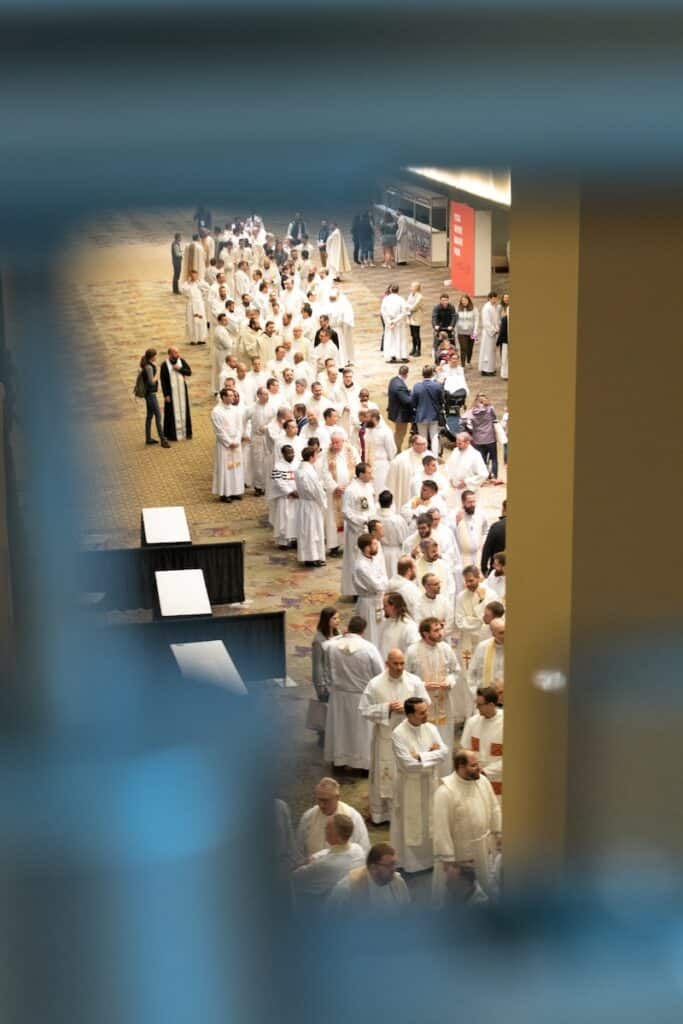In the Catholic Church, the role of a priest is considered one of the holiest and most sacred vocations. Priests are entrusted with the spiritual care of their congregations, administering sacraments, providing pastoral guidance, and acting as intermediaries between the faithful and God. But how are these individuals selected and ordained to join the priesthood and carry out such a significant role in the Catholic faith? In this post, we will explore the intricate process of how priests are chosen and ordained within the Catholic Church.
Discernment and Calling
The journey to becoming a priest begins with a deep sense of vocation, a calling from God to serve His people. Potential candidates often feel this calling from an early age but may also discover it later in life. This initial discernment is a critical step in the process. Individuals who believe they have a vocation to the priesthood are encouraged to speak with their parish priest or a spiritual director to further explore their calling. You can not become a priest in the Catholic Church without going through discernment and calling. Priesthood is not something just handed to you by blood or by birthright.
Seminary Formation
Once a candidate discerns a genuine calling to the priesthood, they enter a seminary, a specialized institution for priestly formation and education. Seminary programs typically last around six years and include both academic and spiritual components. During this time, candidates study theology, philosophy, scripture, and pastoral ministry, while also deepening their spiritual life through prayer, meditation, and reflection. Going to a Seminary is a vital role in a candidate’s journey to priesthood.
Candidacy and Screening
Before a candidate can proceed to ordination, they must undergo a thorough screening process. This process includes background checks, psychological evaluations, and interviews with experienced priests and spiritual directors. The church authorities want to ensure that candidates are mentally, emotionally, and spiritually prepared for the responsibilities of priesthood.
The Rite of Candidacy
Once a candidate successfully completes the screening process, they are admitted to the formal stage of discernment known as the Rite of Candidacy. During this rite, the candidate publicly expresses their intention to become a priest. It is a significant step, as it marks their commitment to continue their formation with the ultimate goal of ordination.
Deaconate Ordination
Before becoming a priest, candidates are typically ordained as transitional deacons. The diaconate ordination marks an intermediate step in their journey towards priesthood. Deacons can perform some of the sacraments, such as baptism and marriage, but cannot consecrate the Eucharist. This period of service as a deacon allows candidates to gain practical experience in pastoral ministry.
Final Steps to Priesthood
After serving as a deacon and completing their seminary education, candidates for the priesthood go through a final period of preparation. This includes a retreat for spiritual reflection and a comprehensive examination by their bishop or religious superior. Upon successful completion, the candidate is ordained to the priesthood in a solemn ceremony known as the Sacrament of Holy Orders.
The Process of Choosing the Priesthood
The process of choosing and ordaining priests in the Catholic Church is a sacred and carefully structured journey. From the initial sense of vocation to the years of seminary formation and the final ordination as a priest, it is a path marked by discernment, education, and spiritual growth. Through this process, the Catholic Church seeks to ensure that those who serve as priests are well-prepared to fulfill their vital role as spiritual leaders and shepherds of their congregations, carrying out the work of God with faith and devotion. If you are interested to join this vocation, we highly suggest you take the first step by going to your local parish to ask for details and information on the process.
